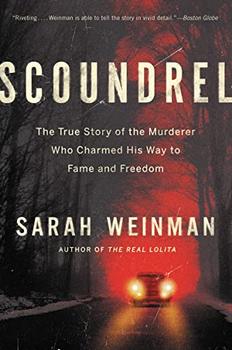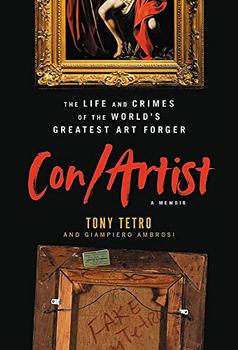Summary | Excerpt | Reviews | Beyond the book | Read-Alikes | Genres & Themes | Author Bio

Why We Fall for It ... Every Time
by Maria KonnikovaAn intriguing investigation into what makes a con artist, and why we continue to be duped by them.
"In this remarkable book, Maria Konnikova shows that human beings are hardwired to believe - often to our peril. And with a deft mix of stories and studies, she explores what that means for how we think and, ultimately, who we are. Deeply researched and elegantly written, The Confidence Game will widen your eyes and sharpen your mind." - Daniel H. Pink, author of Drive and To Sell Is Human
From the New York Times bestselling author of Mastermind, a compelling investigation into the minds, motives, and methods of con artists - and the people who fall for their cons over and over again.
While cheats and swindlers may be a dime a dozen, true conmen - the Bernie Madoffs, the Jim Bakkers, the Lance Armstrongs - are elegant, outsized personalities, artists of persuasion and exploiters of trust. How do they do it? Why are they successful? And what keeps us falling for it, over and over again? These are the questions that journalist and psychologist Maria Konnikova tackles in her mesmerizing new book.
From multimillion-dollar Ponzi schemes to small-time frauds, Konnikova pulls together a selection of fascinating stories to demonstrate what all cons share in common, drawing on scientific, dramatic, and psychological perspectives. Insightful and gripping, the book brings readers into the world of the con, examining the relationship between artist and victim. The Confidence Game asks not only why we believe con artists, but also examines the very act of believing and how our sense of truth can be manipulated by those around us.
Reading The Confidence Game might not make you immune to all scams and schemes, but it can at least offer you consolation if you ever find yourself wondering how a smart person such as yourself could have ever been so foolish...continued
Full Review
 (875 words)
(875 words)
(Reviewed by James Broderick).
Since the beginning of time, humanity has been enchanted by – and paid a small fortune to possess – rare and beautiful objects: diamonds, gold, emeralds…and tulips.
At the peak of the "Great Dutch Tulip Mania of 1637," an event which is covered in The Confidence Game, the most desirable tulip bulbs commanded outrageous sums of money. This floral-infatuation inflation led to the first recorded "economic bubble" – an overvalued and unsustainable market for a product – and was fueled by many of the same strategies con artists use to entice their targets today.
"The line between bubble and con can be a very fine one," argues Maria Konnikova. "They operate on many of the same principles, occur for many of the ...

If you liked The Confidence Game, try these:

by Sarah Weinman
Published 2023
From the author of The Real Lolita and editor of Unspeakable Acts, the astonishing story of a murderer who conned the people around him - including conservative thinker William F. Buckley - into helping set him free

by Tony Tetro, Giampiero Ambrosi
Published 2022
The world's most renowned art forger reveals the secrets behind his decades of painting like the masters - exposing an art world that is far more corrupt than we ever knew while providing an art history lesson wrapped in sex, drugs, and Caravaggio.